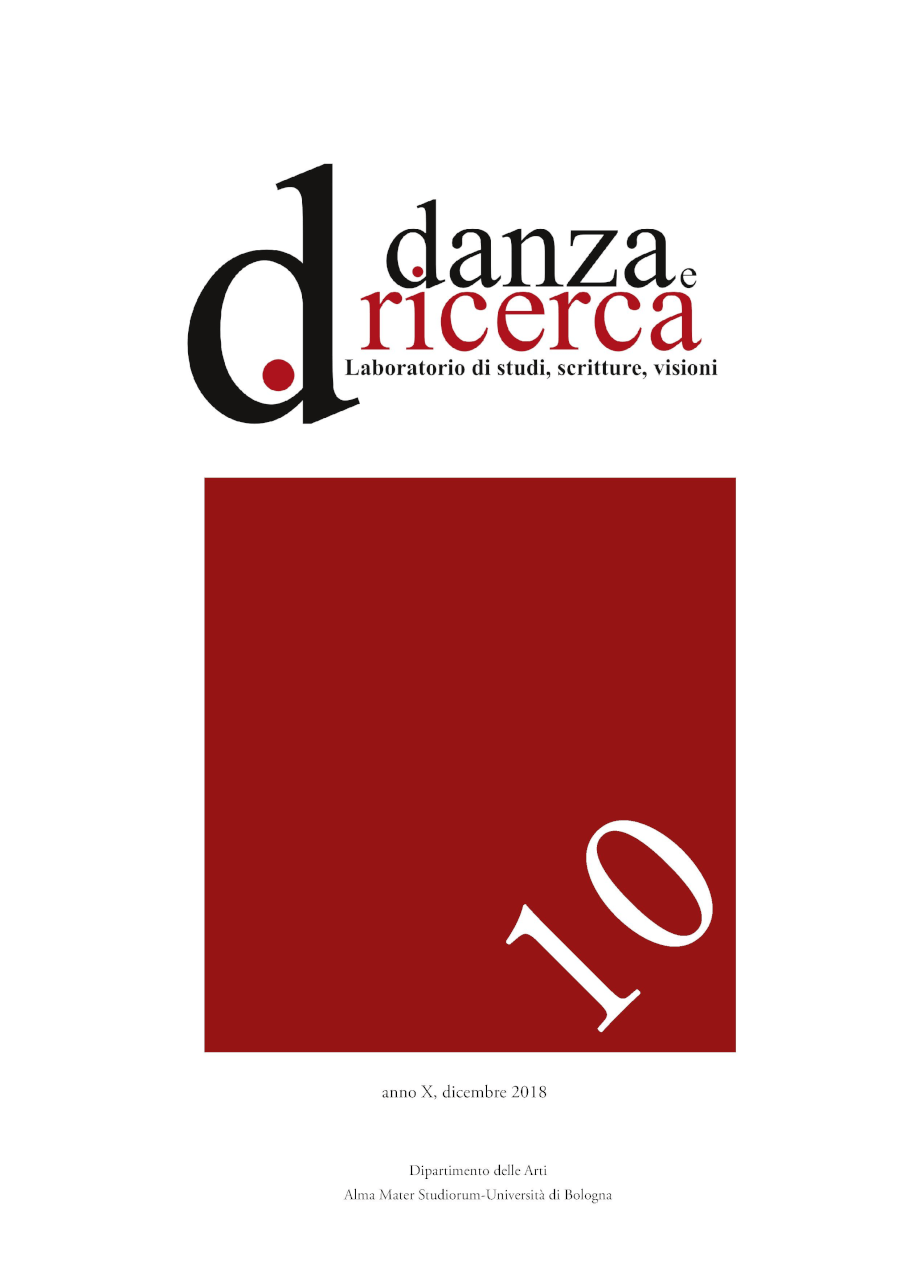Notturno di "Café Müller". Una lettura
DOI:
https://doi.org/10.6092/issn.2036-1599/8714Abstract
The paper analyzes the phraseologies, the poetic aims and the semantical structures of Café Müller (1978) by Pina Bausch, undrelining on one side its multiple links to the forms of cultural anachronism which stemmed in the German context between the 60s and 70s from the memory of the Second World War, and discussing on the other the modes, themselves “meta-chronical”, of Pina Bausch’s dialogue with the tradition of Ausdruckstanz. At the same time, by analyzing some proceedings and patterns like repetition, desynchronisation and allegory, traces back the practical and philosophical reasons for the “paradigmatic” meaning of Café Müller, not only as a masterwork in Tanztheater, but as model for the proceedings of semantical re-construction and modes of signification inherited by the “silent dramaturgy” of the last decades.Downloads
Published
2018-12-31
How to Cite
Fratini Serafide, R. (2018). Notturno di "Café Müller". Una lettura. Danza E Ricerca, 10(10), 85–133. https://doi.org/10.6092/issn.2036-1599/8714
Issue
Section
Studies
License
Copyright (c) 2018 Roberto Fratini Serafide
Copyrights and publishing rights of all the texts on this journal belong to the respective authors without restrictions.
This journal is licensed under a Creative Commons Attribution-NonCommercial 4.0 International License (full legal code).
See also our Open Access Policy.





